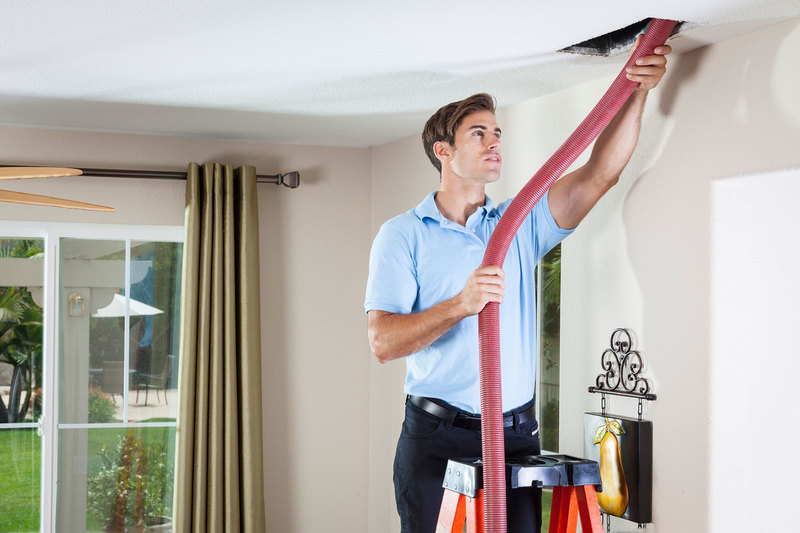PVC vs. Rubber Electrical Tape: Which One Should You Choose?
17
0
·
2025/07/24
·
5 mins read
☕
WriterShelf™ is a unique multiple pen name blogging and forum platform. Protect relationships and your privacy. Take your writing in new directions. ** Join WriterShelf**
WriterShelf™ is an open writing platform. The views, information and opinions in this article are those of the author.
Article info
Categories:
⟩
⟩
Tags:
Total: 1203 words
Like
or Dislike
More from this author
More to explore










In the world of electrical work—whether in residential wiring, industrial control panels, or large-scale construction projects—the choice of insulation material can mean the difference between long-lasting performance and costly rework. Two of the most widely used options are PVC electrical tape and rubber electrical tape. While both are designed to insulate wires and prevent electrical hazards, their properties, applications, and performance vary greatly.
For infrastructure professionals, electricians, and MEP specialists, understanding these differences is essential. This article provides a thorough comparison between PVC and rubber electrical tapes, and explains why PVC electrical tape is often the more versatile, cost-effective, and reliable solution.
What Is Electrical Tape? Why Does Type Matter?
Electrical tape is a pressure-sensitive insulating material used to cover exposed conductors, bundle wires, and provide safety in electrical systems. It helps prevent:
Electric shocks
Short circuits
Moisture and dust intrusion
Mechanical wear on wires
While all electrical tapes serve the core purpose of insulation, the material composition significantly impacts performance, durability, ease of use, and cost. Choosing the wrong tape for your project—especially in high-voltage or outdoor settings—can lead to insulation failure, overheating, or even fire.
Therefore, knowing the strengths and weaknesses of both PVC tape and rubber tape is vital for safe and compliant installations.
PVC Electrical Tape: Properties and Ideal Applications
PVC electrical tape is made from Polyvinyl Chloride film combined with a rubber-based adhesive. It is the most commonly used electric tape across residential, commercial, and industrial projects.
Key Properties of PVC Tape:
Flame Retardant: Slows down flame spread in case of fire
Moisture Resistant: Suitable for damp environments
Good Insulation: Medium to high dielectric strength
Flexible and Conformable: Wraps easily around tight bends and irregular shapes
Color Variety: Ideal for phase identification and labeling
UV Resistant: Some variants are suitable for limited outdoor exposure
Ideal Applications:
Residential wiring: Switchboards, fan and light fixtures
Industrial panels: MCCs, PLC systems
Cable bundling: Control panels and electrical boxes
Moist areas: Bathrooms, basements, outdoor junction boxes
Color coding: Phase marking in three-phase systems
Thanks to its low cost, availability, and ease of use, PVC tape is the preferred solution for the majority of everyday electrical needs.
Rubber Electrical Tape: Properties and When to Use It
Rubber electrical tape is typically made from ethylene propylene rubber (EPR) or silicone rubber and does not contain traditional adhesive. Instead, it’s a self-fusing material that bonds to itself when stretched and overlapped.
Key Properties of Rubber Tape:
Very High Dielectric Strength: Suitable for high-voltage applications
Self-Amalgamating: Bonds to itself without glue, forming a seamless wrap
Extreme Heat Resistance: Performs in elevated temperatures
Waterproof Sealing: Offers better long-term moisture protection when properly applied
Typical Use Cases:
High-voltage splicing and terminations (above 600V)
Transformer insulation and shielding
Substation installations
Motor connections in industrial environments
Disadvantages:
Requires Skill: Must be stretched and applied under tension
Higher Cost: Often 2–3 times more expensive than PVC tape
Limited Color Options: Not suitable for color coding
Needs Overwrap: Often requires PVC overwrap for UV and mechanical protection
While rubber tape excels in specific high-voltage or high-heat environments, it is not a practical option for general electrical or residential work.
PVC vs. Rubber Electrical Tape: Feature-by-Feature Comparison
Here’s a clear comparison to help you decide which tape suits your project:
Feature
PVC Electrical Tape
Rubber Electrical Tape
Material
Polyvinyl Chloride
EPR or Silicone Rubber
Adhesion
Rubber-based adhesive
Self-fusing (no glue)
Application Ease
Simple, beginner-friendly
Requires stretching and tension
Voltage Rating
Up to 600V (typical)
600V and above
Flexibility
High
Very high
Durability
Moderate to high
Very high (when properly applied)
Waterproofing
Moisture-resistant
Excellent with full wrap
Flame Resistance
Yes
Yes
Color Variety
Multiple colors for phase marking
Usually black only
Cost
Budget-friendly
Expensive
Use Case
General purpose (residential & light industrial)
High-voltage and critical joints
In most professional applications outside of extreme high-voltage conditions, PVC electrical tape offers the best value and versatility.
Why PVC Electrical Tape Is the Preferred Choice in Residential and Industrial Projects
For infrastructure and construction professionals, balancing cost, compliance, and durability is key. Here’s why PVC tape wins in everyday scenarios:
1. Cost-Effective for Large Projects
PVC tape is highly affordable.
Ideal for large-volume requirements in buildings, malls, or industrial plants.
2. Ease of Application
Adhesive-backed design allows fast wrapping.
No need for heat or tension application.
3. Color Coding Advantages
Simplifies identification of wire phases.
Meets regulatory compliance for safety.
4. Readily Available in Local Markets
Easy to source from local PVC tape manufacturers in Pakistan.
Can be purchased in bulk at competitive rates.
Unless your application specifically requires rubber tape for high-voltage or thermal insulation, PVC electrical tape is the optimal choice.
If you're working on a residential or commercial project, it’s wise to buy PVC electrical tape price in Pakistan from reputable local suppliers.
Industry Examples: Real-World Use Cases
Residential Wiring Projects
Insulating exposed switchboard wires
Repairing worn fan or light fixture wires
Sealing joints in extension cords
Industrial Applications
Bundling control panel wires
Identifying three-phase cabling with colored tape
Wrapping terminals in switchgear
Construction Sites
Temporary power line insulation
Phase identification during conduit installations
Wrapping exposed wires during outdoor wiring
In all these scenarios, PVC tape is the preferred material due to its ease of use, affordability, and reliable protection.
How to Select the Right Electrical Tape for Your Needs
Not all electrical tape is made equal. Here’s what professionals look for when choosing:
Key Factors to Consider:
Voltage Rating: Ensure it suits your circuit’s requirements
Environment: Indoor or outdoor? Dry or wet?
Durability Needs: For permanent or temporary use?
Color Options: For identification or coding?
Recommendation:
For general wiring and insulation: PVC electrical tape
For high-voltage splices or terminations: Rubber tape with overwrap
Always buy from verified PVC tape manufacturers in Pakistan to ensure quality and standards compliance. For local or bulk projects, buy PVC electrical tape price in Pakistan from trusted industrial suppliers.
Conclusion: Choose PVC for Practicality, Performance, and Price
While both PVC and rubber electrical tapes serve crucial roles in insulation and safety, PVC electrical tape stands out for its practicality in everyday use.
Summary:
PVC tape is affordable, easy to apply, and versatile.
Rubber tape is reserved for specialized high-voltage applications.
Most residential and industrial projects benefit more from the flexibility and cost-efficiency of PVC tape.
If you want a long-lasting, safe, and cost-effective solution for your next project, PVC is the way to go.
Frequently Asked Questions (FAQs)
Q1. Can PVC electrical tape be used for high-voltage applications?
Only if rated appropriately. For very high-voltage connections above 600V, rubber tape or specialized solutions may be safer.
Q2. Is rubber electrical tape waterproof?
Yes, it provides excellent waterproofing when properly wrapped and stretched. However, it often needs an overwrap with PVC tape for UV protection.
Q3. What color PVC tape should I use for ground wires?
Green or green/yellow is the standard color used to indicate grounding in electrical wiring systems.
Q4. Which is easier to apply: PVC or rubber electrical tape?
PVC tape is easier to apply because it’s pre-coated with adhesive. Rubber tape must be stretched and layered, which requires more skill.
Q5. Is PVC tape a permanent solution?
Yes. When applied correctly, quality PVC electrical tape can last for several years, especially in controlled indoor environments.